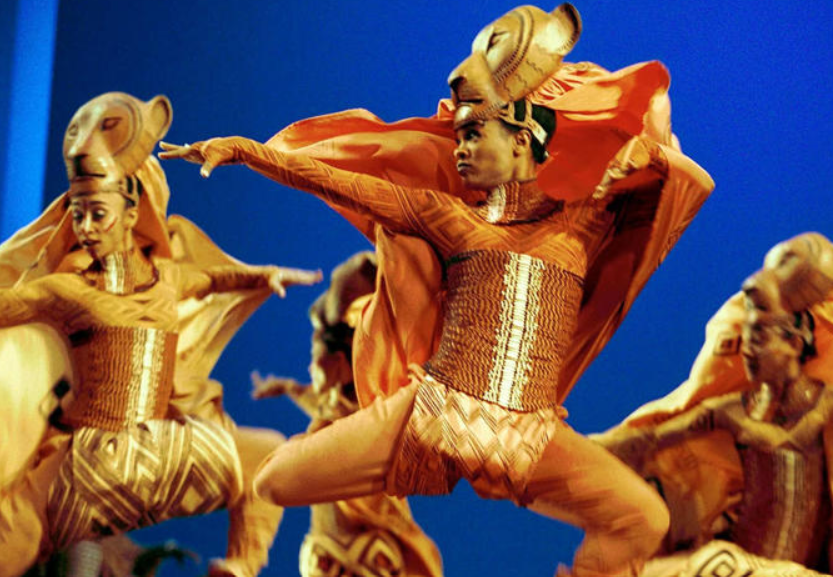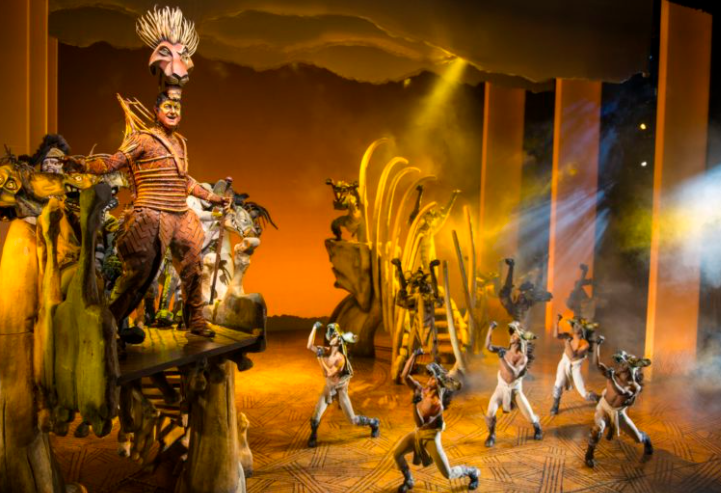When it first debuted on Broadway, 25 years ago, The Lion King was an instant hit with both critics and audiences. It also did quite well financially. The imaginative brilliance of filmmaker Julie Taymor, who, after some tough conversations with studio executives, was given permission to play fast and loose with the original, was a major contributor to the success of this remake of the Disney feature from 1994.
One of the numerous innovations that Taymor created was influenced by the Japanese puppetry method known as Bunraku. This style of puppetry allowed the audience to view the actors performing the show while wearing animal masks on their heads.
The Lion King has earned over £7.6 billion (almost $9 billion) worldwide and has been performed in 24 countries, covering all continents other than Antarctica. It appears that its reputation cannot be damaged in any way. In spite of this, its legacy in the world of musical theater is a lot more problematic. In spite of the fact that it is such a beloved play, The Lion King is responsible for the demise of musical theater.
One of the most peculiar things is that Disney, clearly encouraged by the success of that show, has rarely permitted any directors following Taymor to take the same daring, creative risks and develop their films into genuine theatrical masterpieces. This is one of the things that makes it one of the weirdest things. One of the contributions that House of Mouse has made to the genre is Aladdin,
Also Read:
which took a film that was intelligent and helped enhance the name of the studio in 1992 and turned it into something that bordered on being comedy.
In more recent times, there was “Frozen,” a film that was essentially a carbon copy of the successful animated short. It’s possible that there would have been protests led by seven-year-olds dressed as Elsa if the latter had dared to diverge (let it go, girls! ), but if these shows provide you exactly the same experience as watching the film, it seems like a very needless occupation of our theaters’ space.
In point of fact, a specific bane of the modern musical is the manufacture of imitations of previous works. When performed live, the scene in which Johnny and Baby are seen practicing their dance techniques in the water becomes unintentionally comical.
This is because Dirty Dancing is so eager on satisfying its audience that it goes to great lengths to do so. Pretty Woman is constructed in the same way for the sole purpose of invoking sentimental feelings (despite the fact that it presents a questionable moral message about happy hookers when viewed from a contemporary standpoint), as is Sister Act, which employs a number of motifs that are all too familiar.
Mrs. Doubtfire, Elf, and 9 to 5 as well as the more vintage pleasures of Some Like It Hot and (the just announced) Roman Holiday are all being added to a landscape that has become both lucrative and boringly safe. The list, of course, is never-ending.
However, the most irritating aspect is that those who work in the theater have the resources necessary to adapt films into a theatrical medium and bring audiences to life through the medium’s own vocabulary.
The British musical Billy Elliot, which was only recently resurrected to great acclaim at Curve Leicester, is one of the few exceptions to this rule. For instance, the musical impressionistically inserts a ballet class amid the violent conflicts that occur during the miners’ strike.
It should come as no surprise that this pattern is an element of a larger cultural crisis, namely, the trend toward homogenization, in which each piece of successful “content” is required to be monetised in another medium – for example, hit books are adapted into movies, movies are adapted into stage shows, and so on.
There is also a connection between this and the concept of nostalgia, which refers to our desire, in these weird and difficult times, to view things that we remember with affection rather than something that is fresh new because we are afraid that it will test us.

Although I can understand why a cash-strapped audience would want to see a show that they know they will enjoy, my fear is that these productions are nothing more than a band-aid for the industry. They also point to a larger kind of existential malaise for commercial musical theater, which is struggling to make shows that offer genuine innovation.
The thing that bothers me the most about these shows is that the creators grossly misunderstand their audience and speak condescendingly to them, presuming that we enjoy being passive while we are literally and cinematically manipulated.
Sometimes they just present the action to you on the screen, like how Beauty and the Beast overly relied on video projections for the more difficult moments, or they employ puppetry in ways that are a lot less engaging than what Julie Taymor created.
Both of these examples are rather common. This literalness eliminates one of the most exciting aspects of attending to the theater, which is when you, as a member of the audience, are expected to supply the essential link between the action on stage and the story itself by utilizing the power of your imagination.
We have accepted a certain Disneyfication in terms of spectacle and brand strength, but we have ignored the stage show’s originality and dramatic boldness. This is a source of great frustration because we have learned all the wrong things from The Lion King.
It may be said that theatre is the most daring, startling, and potent form of artistic expression. After a quarter of a century has passed since Taymor’s victory, it is time for us to let the lion roar and free musical theater from its confinement.
Final Words

Despite its widespread acclaim, The Lion King was ultimately destructive to the musical theatre industry. Despite Disney’s obvious high spirits following the show’s success, very few directors have been given the freedom to follow Taymor’s example of taking cinematic works in a more theatrical direction.

